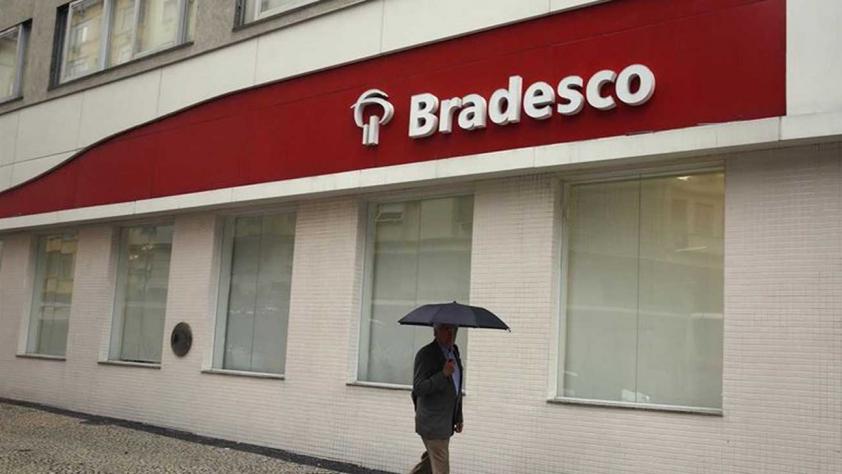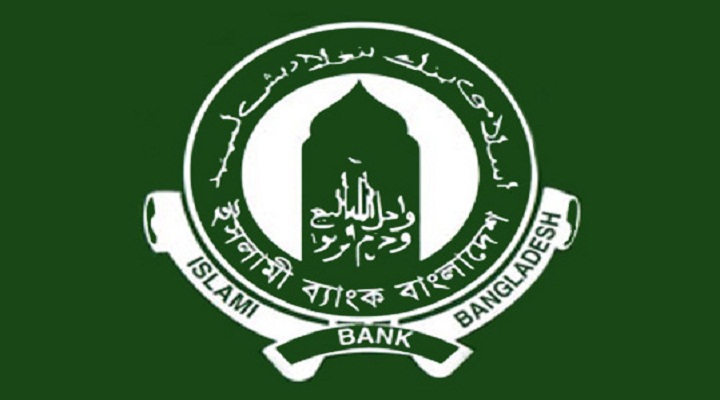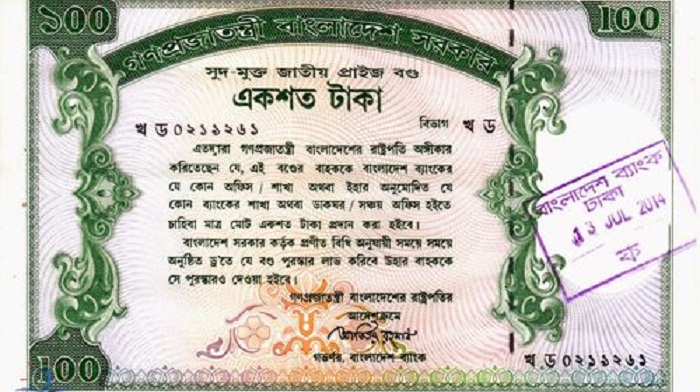Banking
HSBC selling unprofitable Brazil unit to Bradesco for $5.2b

HSBC Holdings Plc agreed to sell its Brazilian unit to Banco Bradesco SA for $5.2 billion, retreating from the second-largest emerging market economy after years of disappointing performance.
Europe's No. 1 bank said in a statement on Monday that the accord with Bradesco includes the disposal of the HSBC Bank Brasil SA Banco Múltiplo and the HSBC Serviços e Participações Ltda units. The sale, which still requires regulatory approval and was sealed on July 31, could be completed by June next year.
The purchase price, which could undergo adjustments to reflect the net asset value of both businesses and is equivalent to 1.8 times book value, was way above what analysts expected. Reuters reported on July 20 that Bradesco had entered exclusive talks with HSBC after offering to pay about 12 billion reais, or 1.2 times book value, for HSBC Brasil.
Other sources had told Reuters in June that fellow suitor Itaú Unibanco Holding SA had placed a bid below book value for HSBC's Brazilian business. Bradesco, Brazil's second-largest private-sector bank, is currently trading at about 1.5 times book value.
The acquisition will allow Osasco, Brazil-based Bradesco to close the asset gap with larger rivals Itaú and state-controlled banks Banco do Brasil SA and Caixa Econômica Federal. HSBC Brasil's focus on high-income customers fits well into Bradesco's plan to ramp up sales of specialized financial services for the wealthy and larger corporations.
"The acquisition will create scale gains and the optimal use of business platforms, leading to bigger nationwide coverage ... and reinforcing the bank's presence in the high-end income segment," Bradesco said in a securities filing.
HSBC, which arrived in Brazil late in the 1990s, never gained enough size to pose a real threat to Itaú, Bradesco or Banco do Brasil, the nation's top lender by assets. HSBC Brasil has 854 branches, 21,000 employees and assets of about 170 billion reais, representing about 2.3 percent of Brazil's banking system assets.
Strategy missteps coupled with rising competition turned the unit into a problem for HSBC Chief Executive Officer Stuart Gulliver, who in June laid out plans to slash nearly one in five jobs worldwide and fix operations which, like in Brazil, were grappling with operational underperformance, high compliance costs and fierce competition.
Slow asset growth prevented HSBC Brasil from gaining scale to win market share, and return on equity was a negative 4.2 percent last year. ROE, as the gauge is known, reached about 16 percent four years ago.
The disposal of the Brazilian business will help HSBC reduce risk-weighted assets by about $37 billion. Gulliver set a target of $290 billion in planned asset reductions to take advantage of potential growth opportunities elsewhere.
"I am pleased to be able to announce today a transaction which achieves both a solid financial outcome and swift delivery
of one of our stated actions," Gulliver said in the HSBC statement.
HSBC was advised on the deal by Goldman Sachs Group Inc. Bradesco was advised on the transaction by its own investment banking unit Bradesco BBI, JPMorgan Chase & Co and NM Rothschild & Sons Ltd.
News:The Daily Star/4-Aug-2015
New BB rules to impact business of mobile financial service providers
The central bank's revised guideline on mobile financial services (MFS), now a draft, may impact business, ownership structures and competitiveness in the increasingly growing sector, a market research firm and securities analyst said.
Brac EPL made the comments in an analysis on the guideline proposed last month by Bangladesh Bank for public opinion.
As a case study, the analysis looked into the possible impact the guideline will have on bKash, the market leader in MFS, if the changes get approved unchanged.
bKash Ltd, a joint venture between Brac Bank and Money In Motion in the US, is the second largest in the world in terms of transactions.
It is the leader in a market where there are 1.12 crore active mobile phone account holders, while the number of agents is 5.3 lakh with a daily average transaction amount of Tk 420 crore.
The draft guideline requires all the MFS operations to be run under a separate legal entity or as independent MFS companies. The minimum paid-up capital for each MFS company would be Tk 100 crore.
A same amount of capital reserve needs to be accumulated over time from retained earnings; annual allocation cannot be less than 10 percent of profit after tax until such reserve reaches the minimum paid-up capital threshold.
bKash was founded as a separate company with paid-up capital of Tk 3.8 crore. The company satisfies most of the forthcoming requirements considering that share premium accounts for another Tk 21 lakh, Brac EPL said.
“However, due to the capital reserve related clause, bKash might end up maintaining a lower payout ratio in the next few years.”
The analysis said the revised guideline acknowledges the success of bKash's model of putting separate entity to drive faster business growth in early stage of the industry. Higher capitalisation will also drive better risk management.
“However, the industry may face greater leadership and management resourcing challenges in the proposed industry structure.”
The draft guideline requires at least four banks to partner as sponsors to own at least 51 percent of any MFS company with no single bank owning more than 15 percent equity stake.
Such transformation from mono-bank led model to multi-bank led model has been proposed to foster interoperability among MFS companies.
As of now, each of the country's 20 MFS businesses is sponsored by a single bank. The existing single bank-owned MFS companies will get three years time from the effective date of the revised guideline to adhere to these changes.
As a result, Brac Bank will have to dilute its shareholding in bKash from 51 percent to 15 percent by partnering with three other banks within three years from the effective date of the revised guideline.
Likewise, Money In Motion will also have to reduce its shareholding from 36.5 percent to 15 percent during the same timeline.
“The guideline will also drive industry consolidation in terms of number of players in the industry. We think that implementation of such regulatory guideline will be extremely challenging in absence of very limited collaboration track-record with no partnership history among major local banks.”
It said regulatory limit on sponsors' shareholding may introduce misalignment of interests and governance issues as no single entity will be able to own majority in a company.
“Among the existing players, bKash will be impacted the most by such regulatory changes if finalised as they are.”
“Due to the maximum shareholding limit, there has to be at least seven shareholders in an MFS company which may not be the best same size to fit all the players' business realities.
We think that direct enforcement of interoperability is rather more pragmatic and feasible from stakeholders' perspective.”
The draft guideline opens up shareholding in MFS companies for the non-financial investors including mobile network operators. No single shareholder or mobile network operator will be able to hold more than 15 percent shares, but more than one mobile operator can collectively own maximum 30 percent shares in a specific MFS company.
It said bKash, being the most successful player with big difference from the second player in the MFS industry, may become an investment target by the mobile operator.
The mobile operators' shareholding in competing companies will also increase competition for bKash.
News:The Daily Star/4-Aug-2015IBBL marks 13.5pc growth in deposit last FY
 Deposit and investment of Islami Bank Bangladesh Limited stood at Tk. 596,489 and 497,620 millions respectively till June 30 last, which are 13.5 percent and 12 percent more in comparison to those of same time of the previous year, reports UNB.
Deposit and investment of Islami Bank Bangladesh Limited stood at Tk. 596,489 and 497,620 millions respectively till June 30 last, which are 13.5 percent and 12 percent more in comparison to those of same time of the previous year, reports UNB.
The bank has conducted import and export business amounting Tk. 171,704 and 110,640 million respectively while handled foreign remittance of Tk 165,797 million in the same period.
This information was disclosed at the inaugural session of half-yearly business development conference of the bank held on Saturday at Muhammad Younus Auditorium of Islami Bank Tower, said a press release.
Chairman of the Bank Engr. Mustafa Anwar was present as the chief guest at the conference presided over by its Managing Director Mohammad Abdul Mannan.
Deputy managing directors Muhammad Abul Bashar, Md. Habibur Rahman Bhuiyan, FCA, Md. Mahbub-ul-Alam, Rafi Ahmed Begh, Abdus Sadeque Bhuiyan and Md. Shamsuzzaman along with Head Office executives were present in the conference. Head of 14 zones and selected branches of the Bank participated in the programme.
The bank chairman said Mustafa Anwar said Islami Bank has been playing role for the development of the country’s industry, agriculture, infrastructure, trade and commerce and overall living standard of the people through the welfare oriented financial services.
Abdul Mannan said Islami Bank has been contributing to the progress of the national economy through real asset based banking activities.
He urged all zonal heads and branch managers to keep role in developing the living standard of the people by priority financing in the need based and productive sectors of the country.
Tk 100 prize bond draw holds Sunday

The 80th draw of the prize bond of Tk 100 held on Sunday (August 2) at the conference room of Anisur Rahman, the additional divisional commissioner of Dhaka.
A total of 1,932 prizes were given, including the first prize of Tk six lakh, second prize of Tk 3.25 lakh, third prize of Tk one lakh, fourth prize of Tk 50,000 and fifth prize of Tk 10,000.
This year, the 0523705 and 0093568 numbers of all series got the first and second prizes respectively.
Besides, 0543384 and 0929224 numbers of all series got the third prizes while 0082401 and 0300687 of all series got the fourth prizes.
Generally, Bangladesh Bank holds the draw of prize bond of TK 100 in every three months.
News:Daily Sun/2-Aug-2015Bank borrowing by govt jumps five times
The government's borrowing from the banking system increased five times in the first 29 days of the fiscal year from a year earlier on the back of revenue mismatch.
From July 1 to July 29, the government borrowed Tk 9,447 crore from the banking system in contrast to Tk 1,722 crore a year earlier.
Typically, if there is a mismatch between earnings and expenditure, the government meets the gap by borrowing from both the central bank and commercial banks.
The government borrowing reached about Tk 14,000 crore a few days back, but it has been repaying the amount as and when the revenues are trickling in, said a Bangladesh Bank official.
In the next couple of days, the government may repay another Tk 5,000 crore, he added.
However, a finance ministry official said the government may have to borrow the full amount of its target towards the end of the fiscal year as the new national pay-scale will come into effect by October, due to which expenditure would soar.
To meet the budget deficit of about Tk 300,000 crore, the government is hoping to borrow Tk 38,523 crore from banks this fiscal year.
Last fiscal year, the government had a target to borrow Tk 31,714 crore from the banking system.
The finance ministry official said a high revenue growth target has been set for this fiscal year -- which is more than 30 percent -- and it is unlikely to be achieved.
So to meet the expenditure target, it will have to borrow from banks, officials said.
Last fiscal year, the sales of savings instruments increased significantly, which means the government did not borrow from banks.
However, the rate of interest on savings instruments was lowered by 2 percentage points in June. As a result, the sales of savings instrument may be less this year.
The monetary programme of the central bank has also kept space for more borrowing needs.
In this regard, the central bank's Monetary Policy Statement (MPS) said the government is likely to take more money from the banking system as reflected in the last budget and the BB has kept sufficient provisions for that.
It said the credit growth figures in the public sector have always been volatile based on the actual financing needs of the government.
It registered a negative figure of 2.5 percent last fiscal year, whereas the BB projects a positive growth rate of 23.7 percent for the current fiscal year.
News:The Daily Star/3-Aug-2015


